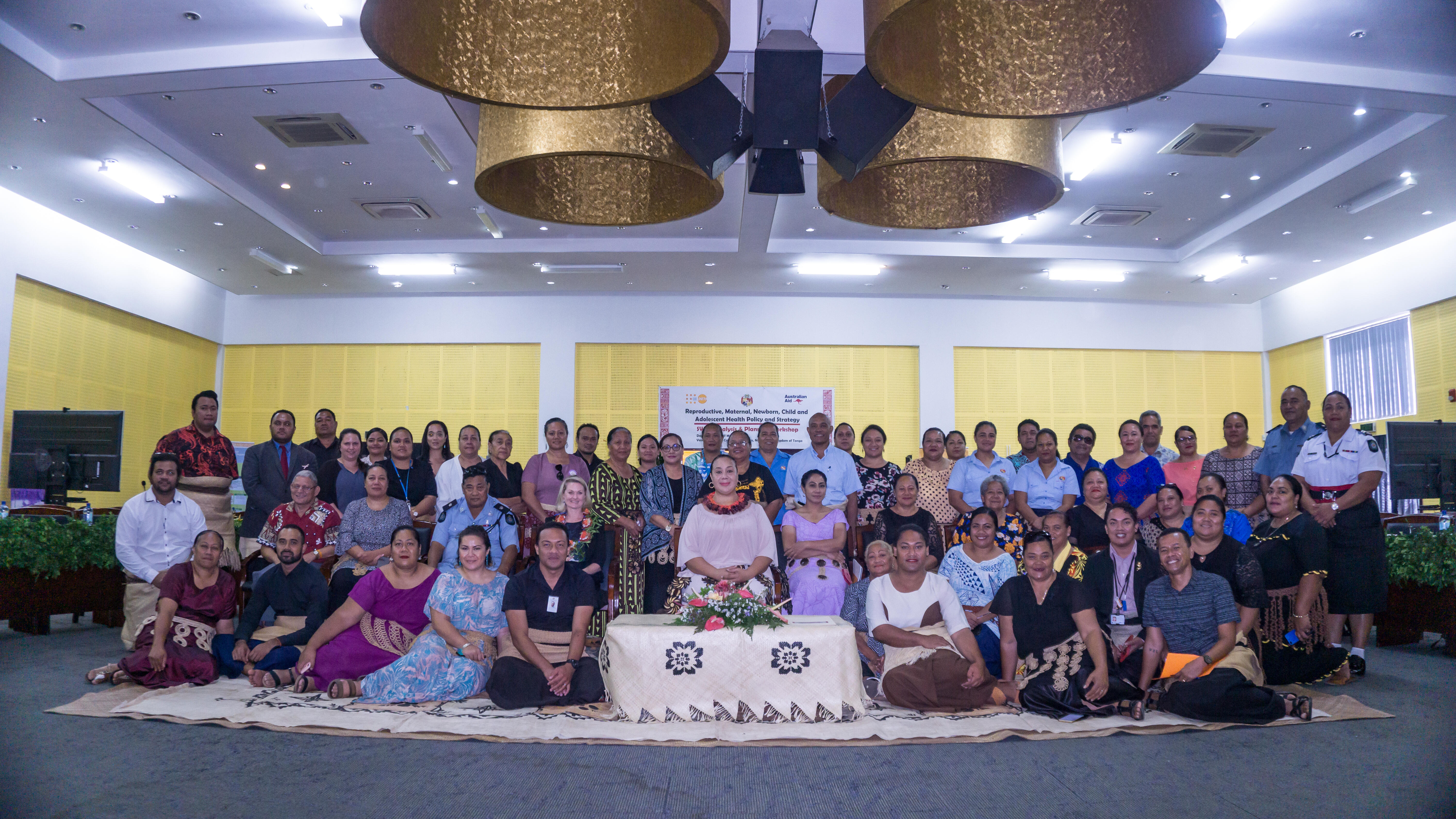Tonga, 16 March 2021 – This week, the Tonga Ministry of Health is convening a workshop to design the Reproductive Maternal Newborn Child and Adolescent Health (RMNCAH) policy with strategic partners in the government and non-government sectors.
Safe motherhood and good reproductive health through the life cycle is a basic human right. The tragedy of a woman dying in a family diminishes the prospects of healthy newborns, healthy children, healthy adolescents, stronger families and safer communities. A RMNCAH policy in Tonga will accelerate a holistic and integrated approach to the life cycle, founded on the Tonga Strategic Development Framework (TSDF II) vision for “an educated and healthy people”, and aligned to the Ministry of Health’s universal health coverage including universal access to sexual and reproductive health services.
“This workshop is instrumental in meeting our commitments towards the Sustainable Development Goals and to meeting the Tonga Strategic Development Framework II vision “A more progressive Tonga supporting a higher quality of life for all”. The implementation design of the RMNCAH Policy and Strategy will allow for monitoring and evaluation of progress, time for resource mobilisation and prioritization activities with the greatest impact that will yield value for money using the limited financial resources,” said Hon. Sālote Lupepau’u Tuita Taione, Patron for Tonga Leiti’s Association. “We wish to extend our utmost appreciation to the United Nations Population Fund for their ongoing support and partnership for over 20 years here in Tonga. It is through this continuous engagement and collaboration that we are closer to meeting our commitments to the International Conference on Population Development or ICPD25 and accelerating our progress towards the Transformative Agenda,” she added.
Unequal access to health care contributes to shortcomings in women’s health at all ages. Most vulnerable population groups in terms of RMNCAH and access to services, are people living in the outer islands, people living with disabilities, adolescents and single mothers. Adolescents and people living with disabilities have important sexual and reproductive health service access issues. These population groups need priority attention to ensure the right of universal sexual and reproductive health, leaving no one behind.
“We know that humanitarian crisis puts every woman, newborn, child and adolescent at risk of morbidity and mortality with significant number of preventable maternal, under-five and newborn deaths occurring in natural disaster situations. We saw the devastating effects of Tropical Cyclone Harold on the communities of Tonga. We applaud the swift and collaborative action between the Ministry of Health and the Tonga Family Health Association in responding to the vulnerable women and girls with reproductive health kits and dignity kits. This brings to life Tonga’s commitments to the SAMOA Pathway, the Kaila Declaration and ICPD25,” said Dr Jennifer Butler, UNFPA Pacific’s Director and Representative in her opening remarks.
The workshop presents the opportunity to position RMNCAH policy in the context of persistent and emergent challenges such as the adverse effects of climate change and COVID-19. Like other Pacific Small Island Developing States (PSIDS), cyclones and extreme climatic conditions are a lived experience in Tonga. Integrating health in climate change adaptation efforts is essential to protect the health of all people, in particular women, children and adolescents in remote outer islands. Strengthening resilience for reproductive, newborn, child and adolescent health in climate change settings may be the most urgent action for ensuring a sustainable population.
The implementation of the RMNCAH policy will require sufficient and sustainable financing. The policy design work will initiate innovative strategic thinking for resource mobilisation, prioritization and implementation of high impact interventions to meet policy objectives. The Ministry of Health is commended for bringing together strategic partners including community perspectives from the youth organizations, faith and civil society. This facilitates an inclusive and bottom up consultative process for greater national relevance, ownership and sustainability of the RMNCAH policy. UNFPA Pacific acknowledges the leadership of the Ministry of Health as well as the funding support of the Australian Government to the RMNCAH policy work in Tonga. The workshop is a significant step in operationalizing Tonga’s commitments to the 2030 Agenda, the SAMOA Pathway, the Sendai Framework and the ICPD25.
For more information, please contact:
Navinesh Kumar, Communications Analyst, Tel: +679 993 2259, nkumar@unfpa.org


